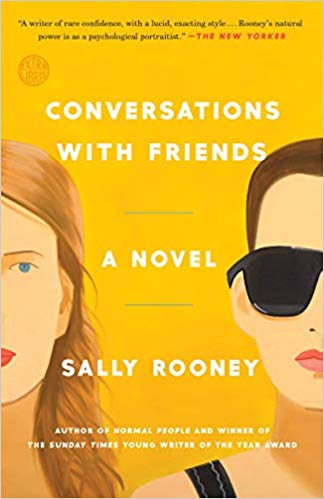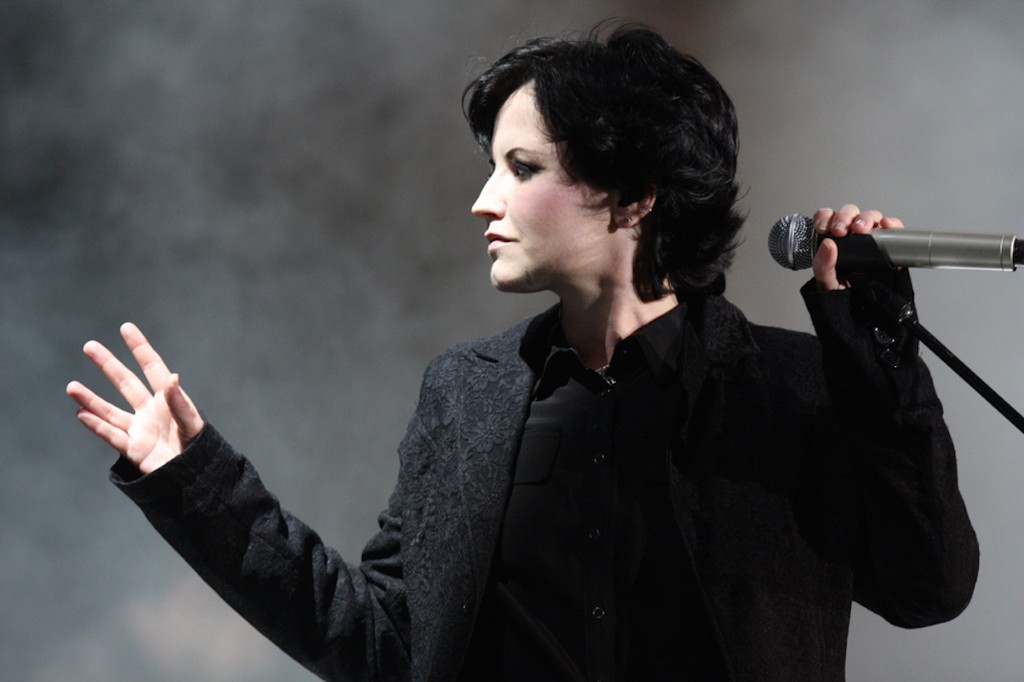Books & Culture
Why Can’t We Make Up Our Minds About Sally Rooney?
The media can't agree on whether her work is chick lit or literary genius—and maybe, for once, it's possible to be both

A few weeks ago Interview Magazine asked five New York City booksellers for their thoughts on Irish literary phenomenon Sally Rooney. Aside from establishing which New Yorkers are buying her books (“regular upper-middle class Manhattanite people,” “young literary hipsters” and, overwhelmingly, women, “specifically younger white women”), they gave a few anecdotes, like this one:
This one woman came in, dressed kind of cool, and she was like, “Okay, my therapist told me I have to read something that makes me look dumb when I pull it out.” ….And I was just immediately like, “Well, you have to read this.”
“This” was Rooney’s first novel, Conversations With Friends, which makes sense if you’ve seen the cover: two cartoony white women’s faces, one in oversized black sunglasses, pop against a juicy tangerine backdrop. It screams chick lit.
Except Rooney was longlisted for the Booker Prize, nominated for the Dylan Thomas and Rathbones Folio Prizes, and won the Costa Award, Irish Book Award, and British Book Awards, in addition to being named the Sunday Times Young Writer of the Year. Critics have praised Rooney’s intelligence and her ability to capture the zeitgeist of her generation. You’d be pretty surprised if someone asked for a book that made them “look dumb” and a bookseller pulled out fellow Costa Prize winners The Satanic Verses or An Artist of the Floating World.
The fact is that by virtue of her accolades, reading Rooney’s work can’t make you look stupid. By virtue of her book covers, however, it will make you look like you’re reading women’s fiction. And to many people, including that (female) bookseller, “dumb-looking” and “women’s fiction” are the same thing.
This particular tension—has Sally Rooney written smart, literary books, or stupid female ones?—underscores the coverage of her work. Conversations with Friends is either “a smart, sexy, realistic portrayal of a woman finding herself” (Book List) or a novel about “the invisible bars imprisoning the apparently free” (The Guardian) written by someone with a “natural power as a psychological portraitist” (The New Yorker). Complicating matters is that Rooney writes straightforward sentences and easy-to-read books. Or maybe Rooney writes taut, precise sentences and poised books; there is an odd bifurcation in her coverage, as if the media is describing two different authors depending on the publication. Sometimes she is a serious literary talent and at others she is the author of Instagrammable beach reads, the voice, and purview, of millennial women.
There’s nothing wrong with debating the quality of a book—literature is meant to be discussed—but it’s easy to fall into the is-she-or-isn’t-she-literary rhetoric and harder to step back and ask what we’re really talking about. If you look closely, many conversations about the literary caliber of Rooney’s books are actually coded discussions about how specific the books are to women. I’ll take myself as an example: I’ve spent much of my recent professional life looking at gender bias in publishing and still I found myself wondering at Sally Rooney’s critical success. Marianne in Normal People and Frances in Conversations with Friends are similar characters: they’re intelligent young women whose unusual status as likeable outsiders allows them to observe and comment on the millennial social scene at Trinity, a prestigious Irish university. It also propels their romantic story lines, which deal with burgeoning sexuality, self-esteem, and the intense, often overwhelming emotions that come with being in love for the first time. (Yes, there are male characters in her books, but Rooney’s clear talent and passion is to showcase the interiority of young women. Her female characters have a complexity that her leading men, who tend to be quiet and a little confused, don’t.) References to issues such as class or sexual orientation feel secondary to young women’s immediate emotional experience, and overall I found the novels to be enjoyable “quick reads” that lacked the resonance I associate with great literature.
Many conversations about the literary caliber of Rooney’s books are actually coded discussions about how specific the books are to women.
But how much of that reaction comes from my cultural predisposition to dismiss works about twenty-something women’s interior lives? While reasonable people can disagree on Rooney’s style or pacing, dismissing her books because of their content is giving in to the underlying belief that a young woman’s life doesn’t teach us anything beyond its own existence. It’s falling into the trap of expectation: we expect young women to be emotional, so those emotions become less interesting or worthy of examination. Comparing Rooney to say, John Banville, a writer who also won the Irish Book Award for a novel about a young romance and coming-of-age, Rooney’s characters strike me as less profound. Why? How much is it because Rooney writes about the lives of white, educated Millennial women, whereas Banville portrays white, educated Baby Boomer men, long considered a fitting subject for great books?
I’m sure I’m hardly alone as a woman whose automatic process is to equate literature with male voices and perspectives. It’s what we’ve been taught. There isn’t “men’s fiction,” after all; for men, there’s just “fiction.” Stories about men are universal stories about the human condition. Women are expected to be able to sympathize with male characters while men can find women impenetrable or uninteresting. No woman would skip a book that centers on a boy’s coming of age or marriage from a man’s point of view, yet stories about a young woman’s first romance or a struggling mother become women’s fiction, a thing apart. Worse, these stories are marketed with cheesy book covers and grouped with mass market thrillers as something you should read when you’re half-fried on the beach, which makes them unappealing to readers of any gender who want more serious fiction. It’s frustrating that women who want to read literary fiction end up ignoring many of the stories that reflect and explore their own experience just because they’ve been shelved in a different section of the bookstore, but it’s hard not to internalize the implication that women’s fiction isn’t very good or else it would be called literary fiction. And it’s not all in our heads; studies show female authors are treated as less literary by the press and books about female protagonists don’t win major awards.
Maybe this is what breaking out of the ‘women’s fiction’ ghetto looks like: a book that is praised by Leonardo DiCaprio’s girlfriend, and also by Anne Enright.
But Rooney’s did. So maybe this is what breaking out of the “women’s fiction” ghetto looks like: a commercially successful book that is praised by Camila Morrone, Leonardo DiCaprio’s Instagram model girlfriend, and also by Anne Enright, winner of the Booker Prize. A book that focuses on the experience of a young woman and doesn’t need to be about anything else to win major awards. A book that has a cheesy cover but isn’t regulated to the genre shelf. Even if it’s still easy to roll our eyes at all the hype, Sally Rooney’s success is an important step towards legitimizing female stories, which is crucial at a time when we want, and need, men to see women’s issues as universal issues, that reproductive rights are human rights, and improving women’s health and childcare policies will positively affect us all. There are going to be some growing pains, for this reader included, but if we pay attention to how we talk about female writers and their work, we can let go of the idea that “stupid” wears lipstick and “smart” has a beard.









